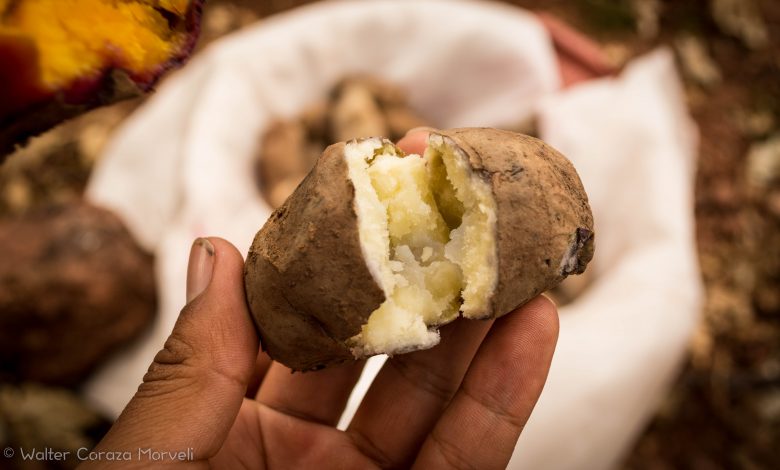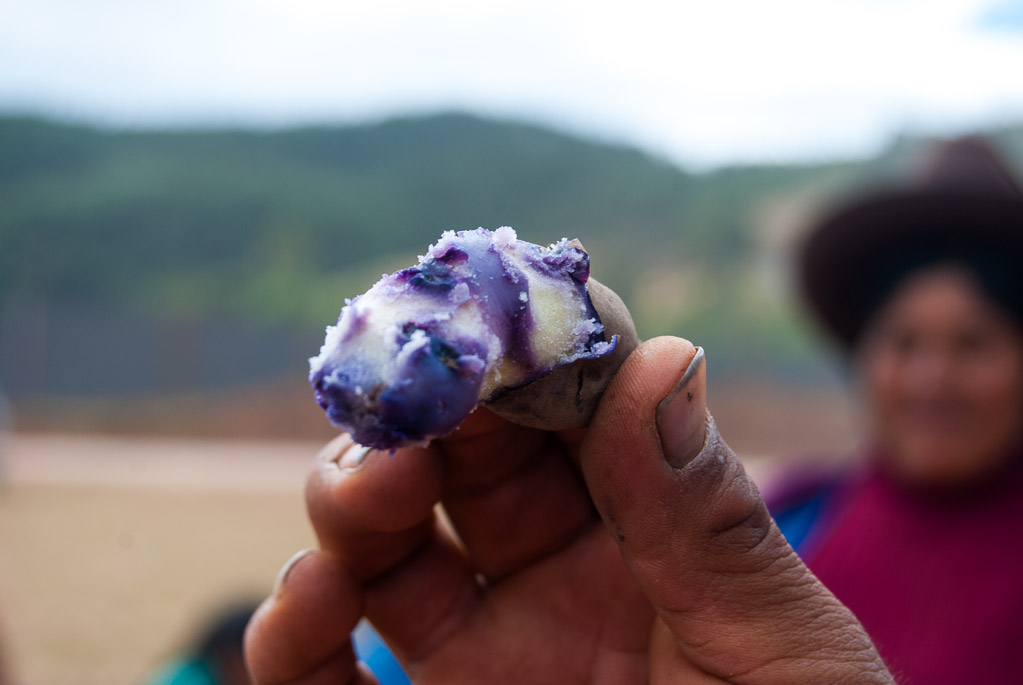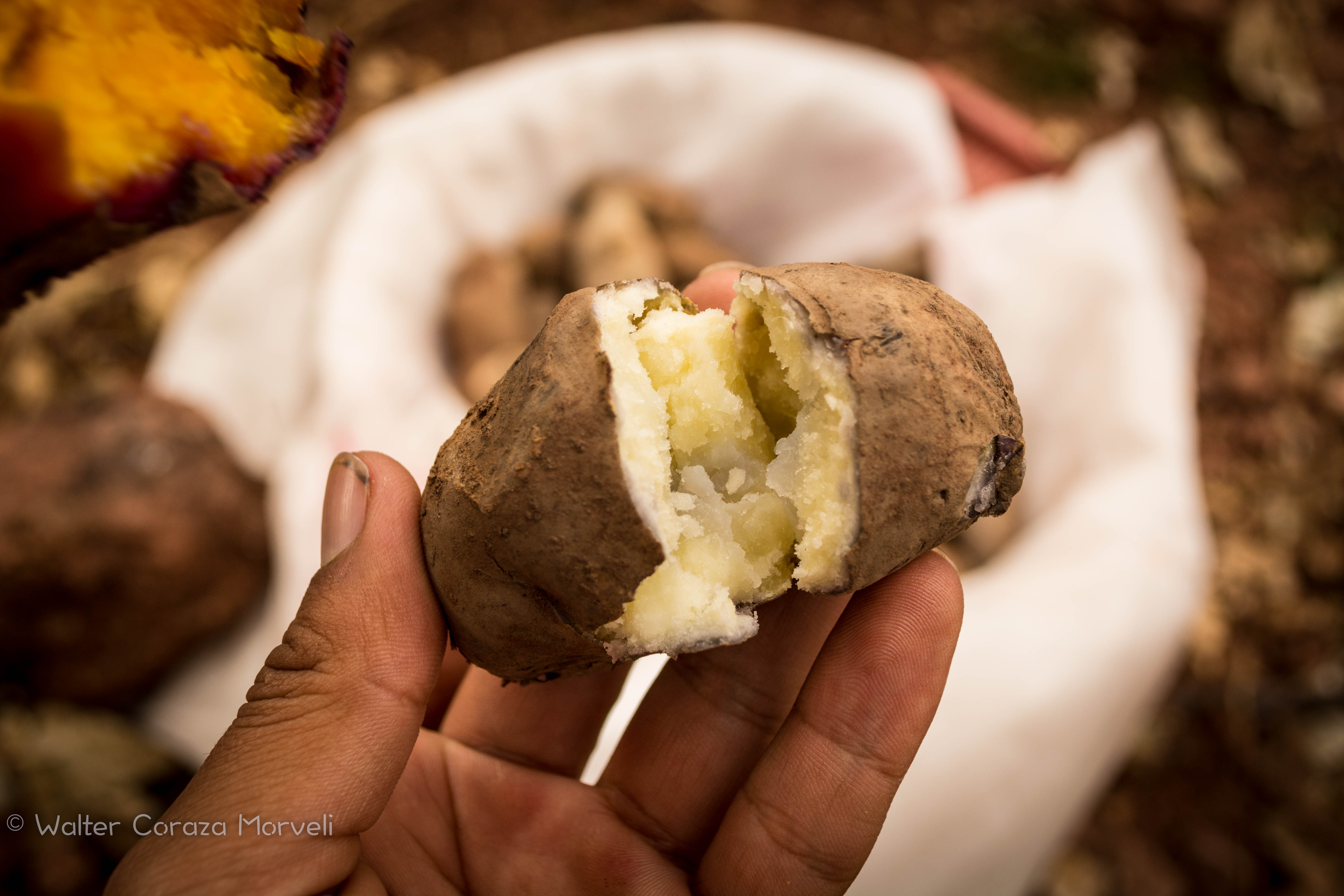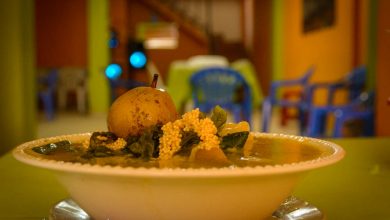How does a potato taste? What words do you use?

Delicious Huatia Baked Potato
How do you describe the taste of a good potato? Or the meat that is by its side? The uchukuta, the hot sauce, in a dollop on top?
You know when it is good, when you like it and it satisfies you. It makes you happy.
A writer might compare it to something else. Roy Peter Clark of the Poynter Institute said to write about food is always to write about something else.

When we speak, though, in ordinary language and not the more refined metaphors of a writer, do we also require metaphors to say something tastes good?
I was thinking about this and so looked up the most basic word, the bane of someone who writes about food, the word delicious. Oh, how you struggle to avoid this most basic and yet most overused of words. Still, that is what people say. “It was good” or “it was delicious”.
After you get past the value judgement (and embedded morality) of “good”, delicious refers to a sensation, pleasure.

Since delicious comes from Latin and is closely related to what people say in Spanish, delicioso, I looked in the central source for defining Spanish words. The Royal Spanish Academy’s dictionary says delicioso refers to something that is “capaz de causar delicia, muy agradable o ameno.” It is capable of causing delight, very agreeable or nice.
For fun, I looked up delicia, the word we so simply call a delight, as in Turkish delight and which so quickly morphs into delicacy. Now the idea rocks and rolls.
Delicia, according to the RAE, is a “placer muy intenso del ánimo” and a “placer sensual muy vivo.” It is an intense pleasure of the soul or a strong (live) pleasure of the soul. Wow! I like that.
To say something is delicious or delicioso then is not to talk about the innate qualities of the food—its technique, strength of flavor, or seasonings—it is to speak about what it does to you. It is sensual and lively; it pleases you.
It is like the sex Roy Peter Clark said was what people generally used as a metaphor for food. Not just the orgasm, but the focus and tingling, the sense that the world only exists in those feelings of the moment. That seems to be how we describe what is good.
We do not talk about the taste, but about what it does to us. It is the lover that comes to us in the night, caresses our body and makes us forget everything else.
A Jug of Wine, a Loaf of Bread—and Thou
Beside me singing in the Wilderness—
O, Wilderness were Paradise enow!
Omar Khayyam, the writer of the above lines in Fitzgerald’s translation, makes this telling of food in conjunction with a lover the basis of poetry and, further, of spirituality.

How can we leave paradise and talk about the word rico? If there is something in Spanish that is rico, it is the paradise Khayyam describes. After all Spanish too has roots in the culture that this Persian writer of the eleventh century concentrated in so few words. Spanish poetry and aesthetics also see in the lover and the turning of the desert into paradise the basis of spirituality and—by extension—of food.
The word rico is not the same as the English rich as I learned it. In Spanish it carries that primary meaning of pleasure, a kind of spiritual and physical ecstasy, even if a small one. Not the orgasm of conclusion, but the the pleasure of being beside the fountain, azahar on the air, and your lover to caress or cherish you. It is the being, the existence, the moment.That is ecstasy and not solely the explosion of ends that, like it or not, mark the border awaiting your return to the hot and dry desert outside.
In Quechua people say misk’iy to describe food. I cannot say I know Quechua, though I have studied it and still do. I just have not lived in a Quechua-speaking community and made that language my daily bread as Spanish and English are.I nibble on it occasionally. It is delicious and it pleases me.

People describe Quechua as misk’iy. I was taught that word meant “sweet”.
To me sweet is like sugar, especially cane sugar—I never liked beet sugar; it just never tasted right. Sugar is intense.
I do not think that notion is at the root of misk’iy, even though cane sugar is also described by that word; it seems a matter of focus. For me cane sugar is the root and when I call someone sweet heart or speak about sweet language, cane sugar is in my mind and heart as the comparison, white, shining, and an orgasm on the tongue.
People also call coffee misk’iy. Now that might be from the sugar they put in it but it seems to me that it is more that the balance is right between bitters and sugars. With sugar or not, a good coffee can be misk’iy.
Even more, misk’iy is the word used to describe a good potato. This does contrast with bitter potatoes, used mostly for making chuño, freeze dried potatoes so that in the processing the bitters come out. But I think that more than the contrast, the word refers to a balance, a coming together of different elements that makes the potato good.
Maybe this is because I do not experience potatoes as sweet, unless they are sugary, like sweet potatoes are, even long before they are candied up.
In English, specialists do describe the taste of potatoes like the yukon gold as sweet.This is a yellow potato in North America that is a cross between a hybrid (of a Peruvian yellow potato called egg yolk, or yema de huevo, and 2x Katahdin) with a North Dakotan potato called Norgleam.
The cross was made by Gary Johnston of Guelph University in the 1960’s. He had been impressed by the taste of the yellow potatoes brought to him by a colleague from Peru, possibly Cuzco, and wanted “to create a potato variety with normal size, shallow eyes, globular shape and yellow flesh.” *
He succeeded beyond his wildest dreams and the yukon gold is increasingly becoming a standard in the US.

To me, after living in Bolivia and Peru for years and visiting for more years, the yukon gold tastes more like a potato than do the watery and relatively tasteless russets or red potatoes I grew up with. It has depth and is rich—in both the Spanish sense and in the English sense as something with a lot of taste. It makes my taste buds happy, where as the russets and reds just taste of carbs.
I do not sense the sugars in it as my primary reaction and so would not describe it as sweet. We could talk about biochemistry, but I think the language and the way it invokes and enables flavors to be felt and known is also important.
I may not call this potato sweet in English. It is rich and dense, with a lot of flavor (for which I do not have names, only metaphors), but it makes me happy when I eat it and it is definitely misk’iy.
https://www.uoguelph.ca/plant/research/potato/history/yukongold.html





